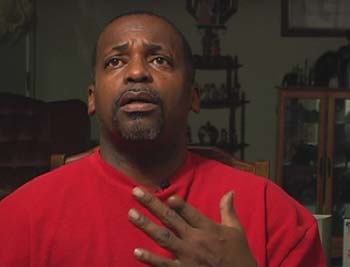Correspondent Lowell Bergman is the Reva and David Logan professor of investigative reporting at the U.C. Berkeley Graduate School of Journalism. He received the 2004 Pulitzer Prize for Public Service for The New York Times' series accompanying the 2003 broadcast of A Dangerous Business.
In interview after interview -- over the phone, on camera and even in random encounters outside McWane plants -- we heard similar comments. "Many, many improvements," a veteran of Atlantic States foundry in New Jersey told us. At the Pacific States foundry in Utah, a union official said, "They have made changes I didn't even think possible."
Standing outside the McWane Cast Iron Pipe foundry in Birmingham, Ala., two young workers, vaguely aware of the publicity five years ago, said that while it was a "hard job" working in the plant, supervisors were fair and the emphasis was on safety. That set them off talking about a substantial rebate they were going to get from McWane's health insurance fund because, as one said, "We have not had an accident all year!"

Reynard Hayden, a McWane worker and union official who lost part of his finger working on the job. He told us that conditions at his plant have improved considerably.
And in Birmingham, Ala., another veteran worker, displaying his hand missing half a finger, told us that "this never would have happened" at his plant today.
These random comments were supported by over a hundred interviews with McWane managers and workers conducted by an outside auditor by order of the Environmental Protection Agency. Reviewed by FRONTLINE, the interviews -- reported under penalty of perjury and at McWane's expense -- contained similar praise for the company's turnaround.
Still, there were complaints at some plants. Some workers feared that they would be "targeted" if they used McWane's 24-hour toll-free access line to report suspected violations. Others felt that the company was simply "toeing the line" because of all the media and government scrutiny, wondering if conditions would backslide after McWane was no longer on probation. The biggest complaints were about the cutbacks in production brought on by the collapse in the housing market, a phenomenon that is reflected in the stacks of water and sewer pipe filling McWane's yards in Birmingham, Ala.
Pat Tyson, the consultant in charge of auditing McWane's injury rates, told FRONTLINE that McWane is a target of regulators because of its history. He also says that it took a while to make sure that McWane facilities were accurately and completely reporting all their injuries.
Tyson referred to a University of Michigan study (PDF file) that estimated that up to 60 percent of reportable injuries never appear on employers' OSHA logs. Getting McWane to self-report fully led in some cases to a rise in its injury rates and a high number of OSHA citations. But with an accurate sense of what is going on in its plants, Tyson says, McWane been able to make them substantially safer workplaces.
McWane, Inc. Today
Since our broadcast, McWane has expanded at home and abroad. At the same time, it has had to cut back on production at many of its foundries because of the downturn in the housing market. McWane has added AB&I Foundry in Oakland, Calif., to its roster of companies, along with the Tyler Xian Xian pipe-fitting factory in China. Overall, the company has grown from 5,000 to 7,500 employees worldwide.
Publicly available estimates put the privately held company's revenue at $1.75 billion. Five years ago, a source inside McWane executive leadership put the company's actual revenue at $2 billion. That figure does not include the McWane family's interest in the Alabama National Bancorporation, a publicly held bank of which the McWane family is the single largest shareholder.
Each year, the company and its facilities give millions of dollars to various community and charitable causes.

